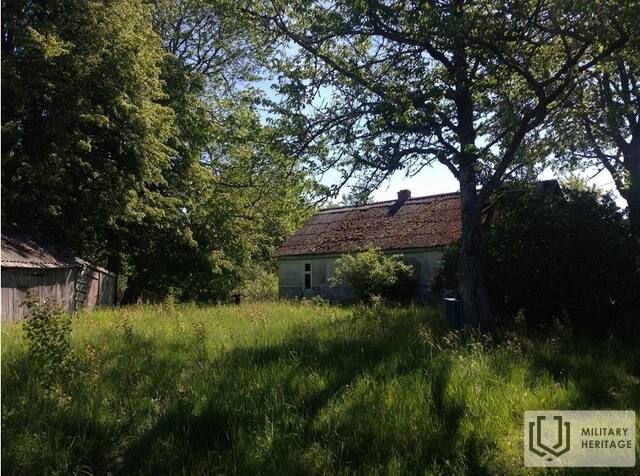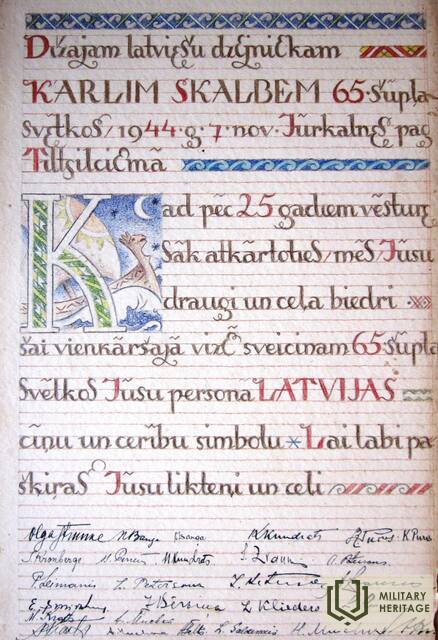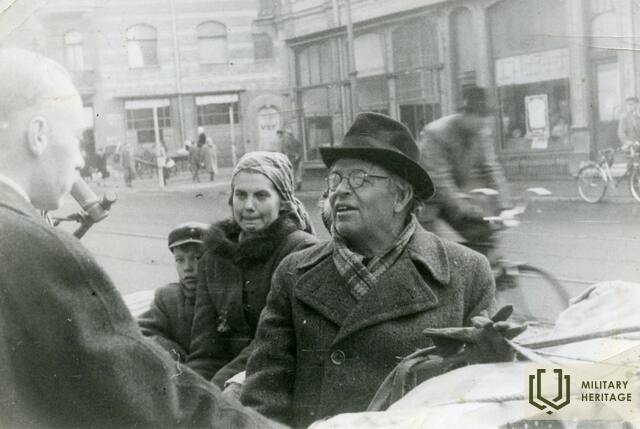„Laukgalių“ namai, rašytojo Kārlio Skalbės rezidencija
Infrastruktūra


 200
200




Jūrkalnės valsčiaus „Laukgaliai“, vieta, kurioje rašytojas Kārlis Skalbe apsistojo 1944 m. spalio–lapkričio mėnesiais, laukdamas pabėgėlių laivo į Švediją.
Rašytojas Kārlis Skalbe (1879–1945) buvo Latvijos laikinosios nacionalinės tarybos ir Latvijos liaudies tarybos narys, Latvijos Respublikos Konstitucinio susirinkimo ir I bei IV Saeimų deputatas. Vokiečių okupacijos metais jis buvo literatūrinio žurnalo „Latvju Mēnešraksts“ vyriausiasis redaktorius, vienas iš LKP 1944 m. kovo 17 d. memorandumo signatarų.
1944 m. lapkričio 11 d. ji pabėgo į Švediją. Mirė 1945 m. Stokholme.
Panaudoti šaltiniai ir literatūra:
R. Legzdiņš. Nuo Vecpiebalgos iki Stokholmo. Apmąstymai apie Kārlį Skalbį. Laiškai ir kalbos. Stokholmas: Dauguva, 1957 m.
I. Daukstė-Silasproģe. Kārlio Skalbės pabėgėlių kelionė į Švediją: nuo individualios patirties iki kolektyvinių prisiminimų, Letonica, 2019, Nr. 40, p. 61-76.
Susijusi laiko juosta
Susijusios temos
Susijusi istorija
Paskutinė Kārlio Skalbės gimtadienio šventė Kuržemės pajūryje
1944 m. lapkričio 7 d. Latvijos pabėgėlių gyvenvietėje Kuržemės pakrantėje vyravo šviesi nuotaika, kai Jūrkalnės „Laukgaļi“ vykę poeto Kārlio Skalbės 65-ojo gimtadienio minėjimai. Vos po keturių dienų Kārlis Skalbė laivu išplaukė į Švediją kaip pabėgėlis. Tą dieną Kārlis Skalbė paskutinį kartą atšventė savo gimtadienį.
Pirmasis pabėgėlių laivas „Centība“ iš Bambalio
1944 m. spalio 31 d. laivas „Centība“ išplaukė iš Kuržemės pakrantės. Šio laivo išvykimą, remdamasi kelių bendrakeleivių prisiminimais, atkūrė Latvijos Centrinės Tarybos sušaukėja Valentine Lasmane.
Pabėgėlių perkėlimo valtimis punktas iš Kuržemės pakrantės į Švediją prie „Pāžių“ namų
Viena iš svarbių perkėlimo vietų buvo netoli „Pāžių“ namų, kur dabar pastatytas paminklas – „Vilties burė“. „Laivai reguliariai atplaukdavo ir daugiausia žmonių išvykdavo iš „Pāžių“, – sako I. Freibergo prisiminimai.
Valdemāro Ģinterio slapta ir pavojinga veikla
Valdemāro Ģinterio vardas buvo paskutinė viltis daugeliui Latvijos pabėgėlių pabėgti į Švediją. Per didelis pabėgėlių dėmesys buvo pavojingas, todėl Ģinteris jį laikė paslaptyje.
Užjaučiantys Lietuvos pakrančių apsaugos vyrai
Prieš daugiau nei 70 metų Lietuvos pakrančių apsaugos pareigūnai buvo sušaudyti už tai, kad padėjo savo kaimynams, valtimis iš Latvijos išplaukusiems pabėgėliams, pasiekti Švediją. Kai vokiečių okupacinė valdžia apie tai sužinojo, ji žiauriai...







